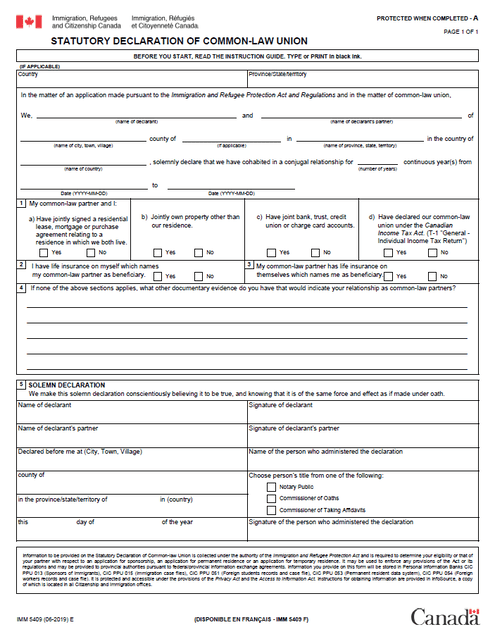Notarization in Dubai UAE is a crucial process for residents and businesses, ensuring that legal documents are properly authenticated and recognized under UAE law. As a leading global commercial and financial hub, Dubai has stringent legal requirements, making notarization essential for validating contracts, affidavits, powers of attorney, and business agreements. An authorized notary public in…
Notarization in Dubai UAE is a crucial process for residents and businesses, ensuring that legal documents are properly authenticated and recognized under UAE law. As a leading global commercial and financial hub, Dubai has stringent legal requirements, making notarization essential for validating contracts, affidavits, powers of attorney, and business agreements.
An authorized notary public in Dubai UAE verifies the authenticity of documents, safeguarding the rights of all parties involved. This step is particularly important in a diverse and international city like Dubai, where individuals and companies frequently deal with cross-border transactions and legal matters. Whether for personal use or corporate dealings, notarization in Dubai UAE ensures that documents are legally enforceable and compliant with local regulations.
Importance of Notarization in Dubai UAE
The importance of notarization in Dubai cannot be overstated, as it validates the genuineness of a document. It acts as a safeguard against fraud by confirming that the person signing the document is indeed who they claim to be. For individuals, notarization is often required for personal documents like wills, affidavits, and marriage certificates. For businesses, notarization is vital for verifying commercial contracts, shareholder agreements, and memorandums of understanding.
Without notarization, many legal and financial documents would not hold weight in a court of law or when presented to government authorities. In Dubai, the notary public ensures compliance with local regulations, making notarized documents acceptable both locally and internationally. This makes the process indispensable for anyone conducting legal or commercial activities in the city.
The Role of a Notary Public in Dubai
A notary public in Dubai is a government-appointed official responsible for witnessing the signing of important documents and verifying their authenticity. The notary public’s role is not limited to just witnessing signatures; they also ensure that the parties involved understand the contents of the document. This prevents disputes and fraudulent claims in the future.
In Dubai, notaries are part of the Dubai Courts system and are authorized to notarize documents for residents and foreign nationals. They check the identity of signatories through official identification such as Emirates ID or passport. The notary public’s involvement is a mandatory step for certain legal documents to be legally enforceable, and their seal or stamp on a document signifies its authenticity and compliance with UAE laws.
Types of Documents That Require Notarization
In Dubai, a wide range of documents require notarization to be legally valid. These documents can be classified into personal, business, and financial categories.
Personal documents that often require notarization include powers of attorney, wills, affidavits, property agreements, and marriage or divorce certificates. For businesses, notarization is commonly required for trade licenses, commercial contracts, partnership agreements, and company formation documents.
Financial documents like loan agreements and guarantees also require notarization to ensure they are legally binding. Each type of document has its own set of requirements for notarization, which must be followed precisely. The notary public checks all supporting documents, signatures, and translations, if needed, before applying the official seal. This thorough process ensures that notarized documents meet the legal standards set by Dubai authorities.
The Notarization Process in Dubai
The notarization process in Dubai is structured to ensure accuracy and authenticity. It typically begins with preparing the document and ensuring it is written in Arabic or accompanied by a certified Arabic translation. This is because Arabic is the official language of the UAE, and all legal documents must be understood by the authorities.
Once the document is ready, the individual or company representative must visit a notary public at the Dubai Courts or an authorized center. The notary public will verify the identity of the signatories by checking original identification documents. After verification, the signatories sign the document in the presence of the notary public, who then applies the official stamp and signature. Depending on the type of document, additional approvals or attestations from other government bodies may be required.
Benefits of Notarization in Dubai
There are numerous benefits of notarization in Dubai, making it an essential step in many legal and business processes. First, notarized documents are legally recognized and hold strong evidentiary value in courts.
This ensures that in case of disputes, the document can be relied upon as a verified piece of evidence. Second, notarization prevents fraudulent activities by verifying the identity of the parties and the authenticity of the document.
For businesses, it adds a layer of credibility to contracts and agreements, which is crucial in Dubai’s competitive market. Additionally, notarized documents are often required by banks, government agencies, and international authorities. This means that without notarization, individuals and companies might face delays or rejections in their transactions or legal procedures. Notarization thus acts as both a safeguard and a facilitator for legal compliance.
Cost of Notarization in Dubai
The cost of notarization in Dubai depends on the type and complexity of the document. Personal documents like affidavits or powers of attorney typically have a fixed fee, while business-related documents may incur higher costs due to their legal and commercial implications.
The Dubai Courts have a standardized fee structure for notarization services, ensuring transparency and consistency. However, additional expenses may arise if the document requires translation or certification from other government departments.
For example, if a document is issued outside the UAE, it might need to be attested by the relevant embassy before notarization. While the cost can vary, notarization is considered an essential investment for ensuring legal security and recognition of documents. Many individuals and companies prefer to use professional services to manage the notarization process efficiently.
Challenges in Notarization
Despite being a straightforward process, notarization in Dubai can present certain challenges, especially for foreign nationals and businesses. Language barriers are one of the most common issues, as all documents must be in Arabic or accompanied by an official translation.
Additionally, understanding the specific legal requirements for different types of documents can be complex. Foreign documents may require additional attestations, such as embassy verification, before they can be notarized in Dubai.
Scheduling an appointment with the notary public can also be time-consuming during peak periods. Furthermore, any errors or missing information in the document can lead to delays or rejections. To overcome these challenges, many people rely on legal professionals or service providers who specialize in document notarization in Dubai.
Conclusion
Notarization in Dubai is a vital legal process that ensures the authenticity, validity, and enforceability of important documents. Whether for personal or business purposes, notarization acts as a safeguard against fraud and legal disputes. The role of the notary public is central to this process, ensuring compliance with UAE laws and regulations. From personal documents like powers of attorney to business contracts and financial agreements, notarization covers a wide range of legal requirements. While the process may involve certain challenges, such as language translation and additional attestations, the benefits of having notarized documents far outweigh the effort. For anyone living or doing business in Dubai, understanding the notarization process is crucial for smooth legal and commercial transactions.





